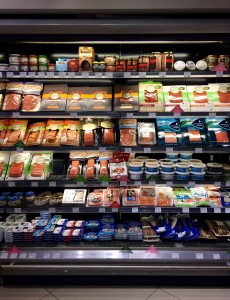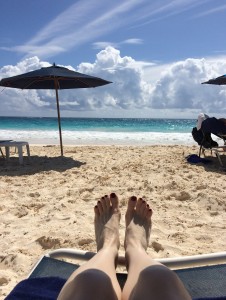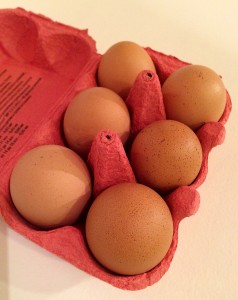Like many things, nutrition is swayed by fashion and the media. In the early 1970s, good health meant more Vitamin C; Haliborange tablets boomed. Then it was fibre and the advent of All Bran. Then calorie counting and low fat diets. Then high protein Atkins, and 5:2 fasting. While recent headlines hark back to wartime: we’re low on Vitamin D.
The great news is it’s free. D is the ‘sunshine vitamin’ as it’s made when ultraviolet rays react with cholesterol under our skin. Experts say 10-15 minutes’ exposure to sunlight at least twice a week – on bare hands, arms and lower legs – will ensure you create enough D, especially from March to September. Literally, D-lightful.
If you’re in the sun for longer, then of course apply sunscreen with an SPF of at least 15 to reduce the risk of skin cancer. Fair skins should take care not to go red, while darker skins need slightly more sun. Balance is the key.
Yet three decades of covering my pale skin and a winter week of overnight shifts made me realise I see less sun than an extra from Twilight. And, in a world of 24-hour working and multicultural dress codes, I’m not alone. Between October and early March, people in the UK usually receive much less vitamin D from sunlight.

Fish Is The D-ish: top natural sources of Vitamin D include oily fish like salmon, trout and fresh tuna
But it’s vital. Vitamin D helps regulate the amount of calcium and phosphate in the body. This not only keeps bones and teeth healthy. It also maintains good muscles, a strong nervous system, a normal heartbeat and efficient blood clotting. Certainly worth a quick stroll to work for, or tea in the back garden.
As we learned from wartime generations, a lack of Vitamin D can lead to bone deformities such as rickets in children. But it also causes painful bone softening – or osteomalacia – in adults. Not to mention tooth decay, tiredness and arthritis.
These conditions have been pretty rare for years in the western world. But recent reports also suggest too little D may result in short sightedness, migraines, jaundice and alopaecia, as well as autism, inflammatory bowel disease, asthma, Alzheimer’s, multiple sclerosis and depression. Powerful, thought provoking claims.
Fortunately, Vitamin D can also be eaten. And it’s a bonus for fish lovers. The best natural sources include fish liver oil, sardines, herring, mackerel, salmon, trout and fresh tuna. One report claims eating these oily fish two or three times a week can also help treat asthma and ward off prostate cancer. Some even think the vitamin could prevent the common cold. Baked trout anyone?
There’s also D in egg yolk, red meat and liver though, contrary to common thinking, cows’ milk in the UK isn’t considered a good source. On the plus side, being a fat-soluble vitamin, excess D is stored in the liver and fatty tissue, and the body can tap into these reserves when the immediate supply runs short.
What about supplements? The debate rages among scientists about how effective they are.
Being a personal trainer and an advocate of a natural and balanced diet, I prefer a quick walk outside, or a dish with fish or eggs to get my quota of D. Though this might not be an option for vegans or those on other diets.
Public Health England advises people to take 10 micrograms (400 IU) of Vitamin D supplements every day in winter. But don’t overdo it. Daily doses of above 1,600 IU could increase the risk of kidney stones, digestive problems, psychological changes, calcified arteries and heart rhythm disorders. Anyone with a pre-existing condition, on medication, pregnant or breastfeeding should ask their doctor first.
Happily though, the latest health alert has simple solutions and most of them natural. Sun, fish, eggs, and maybe a pill. Considering the consequences of low vitamin D, this seems like the simplest ever guide to help boost the nation’s health. And there’s not a little orange packet or bowl of bran in sight.



Comments are closed.